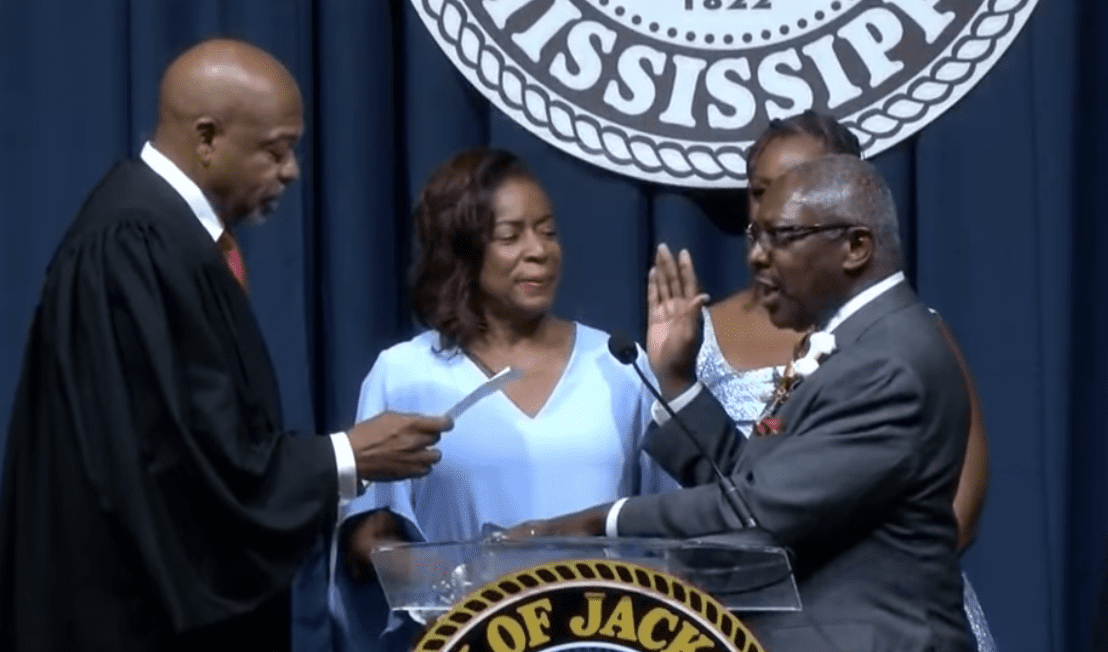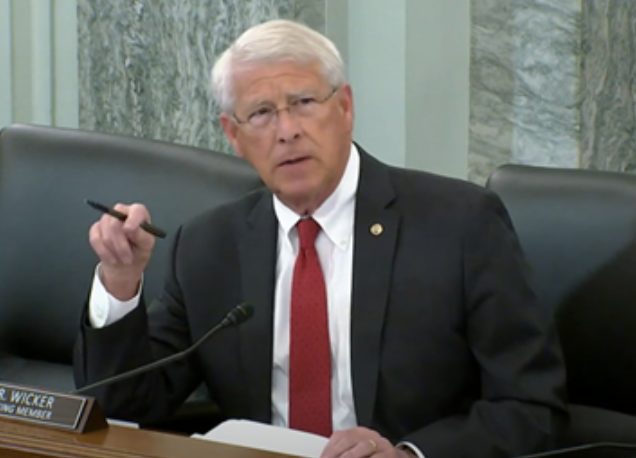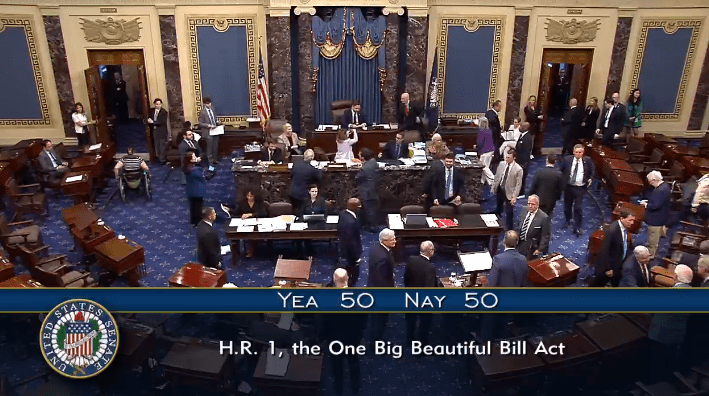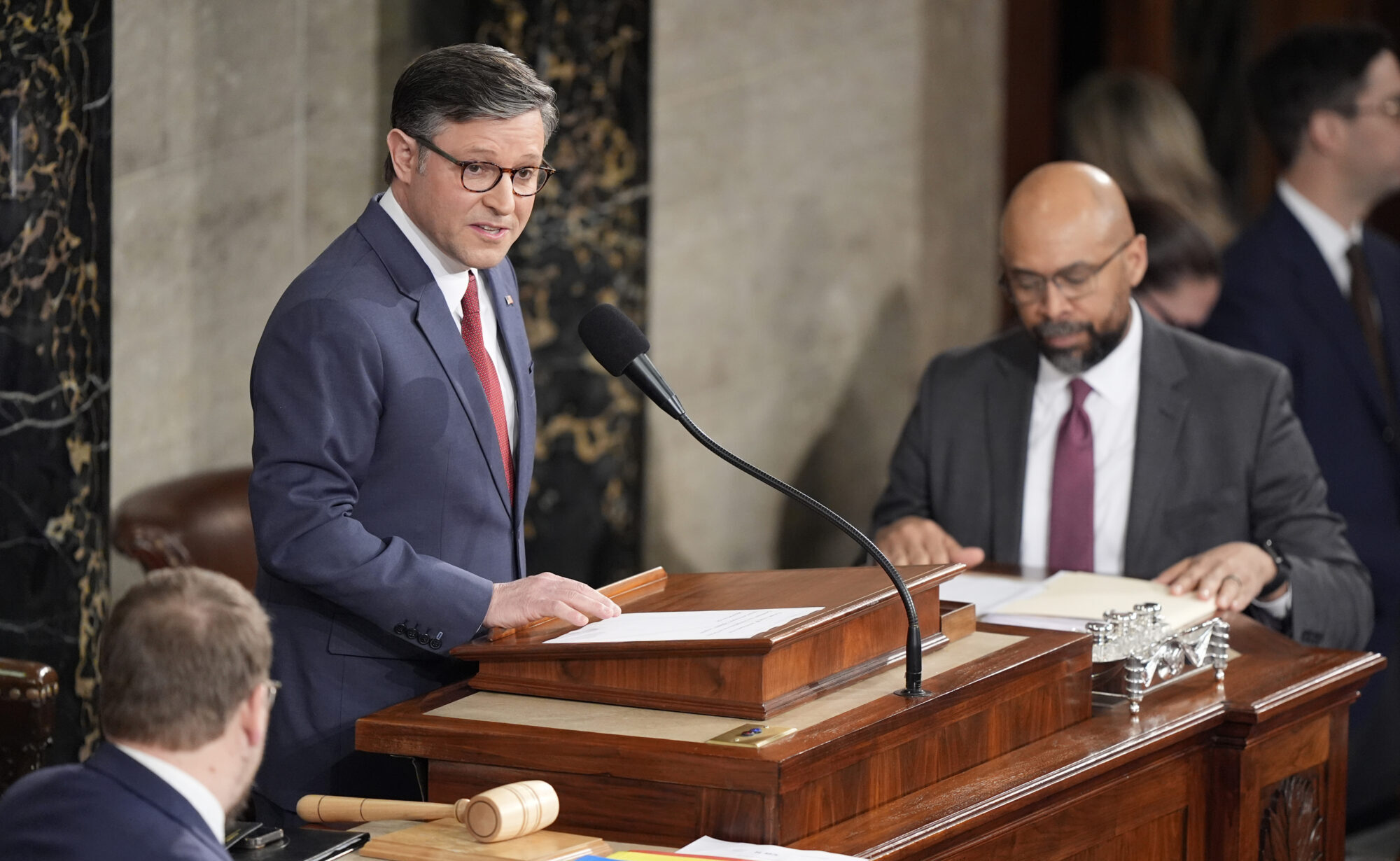Bipartisan Measure Amends GOMESA, Creates Revenue Sharing from Offshore Wind Projects
U.S. Senators Roger Wicker (R-Miss.) and Cindy Hyde-Smith (R-Miss.) this week cosponsored bipartisan legislation that would improve Mississippi’s share of revenues generated from offshore energy production, including future wind projects.
The Mississippi Senators are original cosponsors of the Reinvesting in Shoreline Economies & Ecosystems (RISEE) Act (S.2130), which would amend the Gulf of Mexico Energy Security Act (GOMESA) and create a new dedicated revenue stream from future offshore wind development for coastal protection and resiliency.
“Mississippi is rich in natural resources, and our state is a proud contributor to the nation’s energy independence,” Wicker said. “This legislation would ensure Gulf Coast States receive a fair share of energy revenues generated off our shores, so that we can continue to make investments necessary to protect and preserve our coasts for future generations.”
“Gulf Coast states like Mississippi deserve their fair share of offshore energy revenues,” said Hyde-Smith, a member of the Senate Energy and Natural Resources Committee. “This legislation would set more equitable revenue shares for Mississippi through GOMESA and future offshore wind projects. This would increase our state’s ability to use those resources for coastal restoration, hurricane protection, or infrastructure.”
U.S. Senators Bill Cassidy, M.D. (R-La.) and Sheldon Whitehouse (D-R.I.) introduced the bill, which is also cosponsored by Senators Tim Kaine (D-Va.), Brian Schatz (D-Hawaii), Angus King (I-Maine), Chris Van Hollen (D-Md.), and Jeanne Shaheen (D-N.H.).
Like previous legislation sponsored by Wicker and Hyde-Smith, the RISEE Act would increase the share of Gulf of Mexico royalties shared by four Gulf energy producing states (Mississippi, Louisiana, Alabama, and Texas).
The RISEE Act would amend GOMESA by:
- Eliminating the state revenue sharing cap, currently set at $375 million.
- Increasing the amount of GOMESA revenues shared with states from 37.5 percent to 50 percent.
- Lifting the Land & Water Conservation Fund state side funding cap of $125 million.
- Adding the National Oceans and Coastal Security Fund as a fourth GOMESA equity (12.5 percent).
- Making oil and gas leases from 2000-2006 eligible for future GOMESA payments to Gulf Coast states and the National Oceans and Coastal Security Fund. Today, only leases from 2007 to present are eligible for GOMESA payments. Energy Information Agency reports 11 new oil and gas fields in the Gulf of Mexico will contribute to the overall growth in U.S. production are GOMESA eligible under current law. Another eight would also qualify under this proposed change.
- Protecting GOMESA revenues from budget sequestration.
Regarding offshore wind projects, the RISEE Act would amend current law, which now requires 100 percent of all revenues generated from offshore wind leases and production beyond state waters be deposited in the U.S. Treasury.
The RISEE Act would benefit states with offshore wind projects by:
- Sending 50 percent of offshore wind revenue to adjacent states where offshore wind farms are developed. The state share would be based on a formula developed by the Secretary of the Interior to ensure states are receiving revenues from wind energy development off their coasts.
- Permitting the use of state funds for: coastal restoration, hurricane protection, or infrastructure; the mitigation of damage to fish, wildlife, or other natural resources, including through fisheries science and research; and the implementation of a marine, coastal, or conservation management plan.
- Designating 37.5 percent of offshore wind revenues for the National Oceans and Coastal Security Fund, which includes formula-based funding to states and competitive grants to coastal and Great Lakes communities to respond to coastal erosion and sea level rise, restore coastal habitat, and make improvements to coastal infrastructure.
The Coastal States Organization, American Shore and Beach Preservation Association, National Recreation and Park Association, National Wildlife Federation, National Marine Manufacturers Associations, and Congressional Sportsmen’s Foundation are among the groups supporting the RISEE Act.
S.2130 supporting documents: One-page summary; Section-by-Section analysis; and FAQ sheet.
Press Release
6/18/2021









